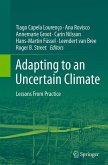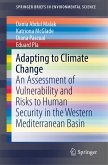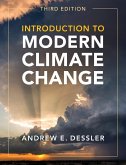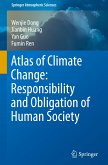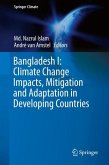Climate change highlights the challenges for long-term policy making in the face of persistent and irreducible levels of uncertainties. It calls for the development of flexible approaches, innovative governance and other elements that contribute to effective and adaptive decision-making. Exploring these new approaches is also a challenge for those involved in climate research and development of adaptation policy.
The book provides a dozen real-life examples of adaptation decision making in the form of case studies:
· Water supply management in Portugal, England and Wales and Hungary
· Flooding, including flood risk in Ireland, coastal flooding and erosion in Southwest France, and flood management in Australia's Hutt River region
· Transport and utilities, including the Austrian Federal railway system, public transit in Dresden, and Québec hydro-electric power
· Report examining communication of large numbers of climate scenarios in Dutch climate adaptation workshops.
Hinweis: Dieser Artikel kann nur an eine deutsche Lieferadresse ausgeliefert werden.
The book provides a dozen real-life examples of adaptation decision making in the form of case studies:
· Water supply management in Portugal, England and Wales and Hungary
· Flooding, including flood risk in Ireland, coastal flooding and erosion in Southwest France, and flood management in Australia's Hutt River region
· Transport and utilities, including the Austrian Federal railway system, public transit in Dresden, and Québec hydro-electric power
· Report examining communication of large numbers of climate scenarios in Dutch climate adaptation workshops.
Hinweis: Dieser Artikel kann nur an eine deutsche Lieferadresse ausgeliefert werden.



